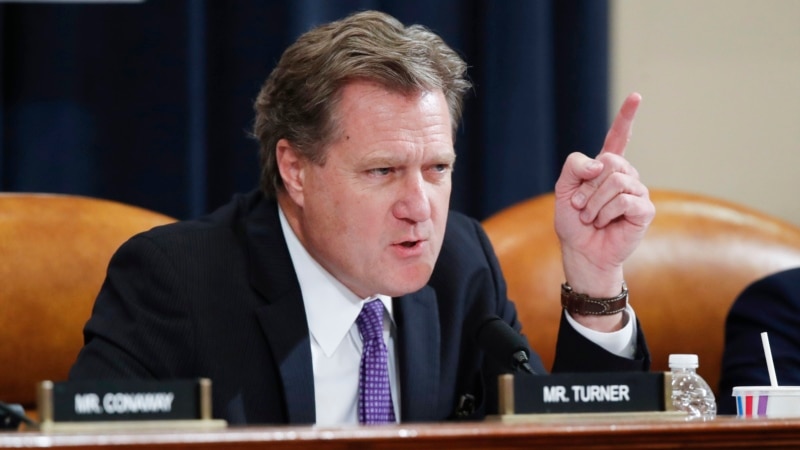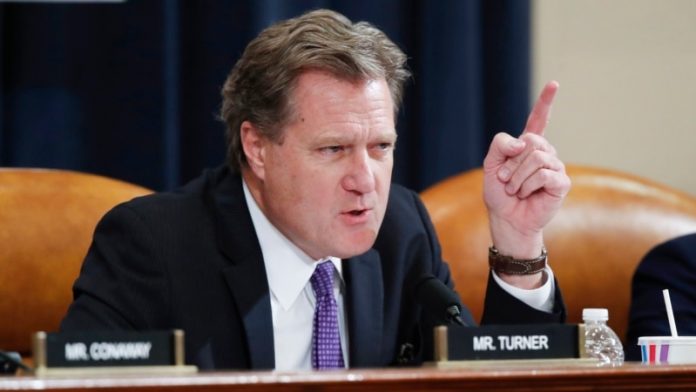
President-elect Donald Trump’s pick to be the top U.S. diplomat said it is “unrealistic” to expect Ukraine to recover all the land Russia has seized since launching its full-scale invasion nearly three years ago, adding Kyiv will have to make concessions to Moscow to end the fighting.
Ukraine Invasion: News & Analysis
RFE/RL’s Ukraine Live Briefing gives you the latest developments on Russia’s invasion, Western military aid, the plight of civilians, and territorial control maps. For all of RFE/RL’s coverage of the war, click here.
“There’s no way Ukraine is also going to push these people [Russian forces] all the way back to where they were on the eve of the invasion just given the size dynamic,” Republican Senator Marco Rubio told lawmakers during his Senate confirmation hearing on January 15.
Trump ran on a promise to quickly end the war in Ukraine, raising concerns he would force Kyiv to cede territory — at least temporarily — to Moscow. Russia currently controls about 20 percent of Ukraine’s territory.
Rubio declined to speculate on what concessions Ukraine might have to make but told lawmakers NATO membership would be part of the negotiations. Ukrainian President Volodymyr Zelenskiy has said his country needs Western security guarantees like NATO membership to prevent Russia from invading again in a few years.
Russia and Ukraine have been trying to seize as much land from each other as possible in the run-up to Trump’s inauguration on January 20 to improve their respective bargaining positions ahead of possible talks.
Russia has had the initiative on the battlefield since Ukraine’s counteroffensive concluded unsuccessfully in late 2023. It has been seizing territory in eastern Ukraine at the fastest pace since the start of the war in February 2022. Russia is on the verge of capturing Pokrovsk, a key logistics hub in Donetsk region.
Meanwhile, Ukraine in August seized a chunk of Russian territory in Kursk region as part of a successful surprise attack. After giving up nearly half those gains since then, Ukraine has recently launched a small-scale offensive in the region.
Ukraine’s struggles on the battlefield of late stem from its inability to replenish its infantry forces. While Russia has suffered enormous losses — more than 700,000 according to U.S. intelligence — Moscow has been able to recruit more and more men, giving it a significant manpower advantage.
“Despite high casualties, the Russian military maintains an offensive footing on multiple fronts,” Can Kasapoglu, an analyst at the Hudson Institute, said in a January 15 note.
The Biden administration has repeatedly said the United States would support Ukraine “for as long as it takes” and has committed nearly $66 billion in military aid to the country since the start of the invasion.
Rubio said that position is “not a realistic or prudent” one, highlighting Ukraine’s manpower problems.
“Ukraine isn’t running out of money, it is running out of people,” he said. “If we want to be honest about bringing that [war] to an end, true diplomacy will require concessions from every party engaged in those conversations.”
Experts say that Russian President Vladimir Putin is not interested in ending the war now because he believes he is winning. He also hasn’t given up his goal of conquering Ukraine, John Kirby, U.S. national security spokesman for the Biden administration, told reporters on January 14.
“When the Trump team starts engaging in these kinds of discussions, they will find that getting Putin to abandon his goal of subjugating all of Ukraine will be the hardest thing in this process,” Mikhail Alexseev, a political science professor at San Diego State University who focuses on Russia and Ukraine, told RFE/RL.
While Trump claimed during the campaign that he would be able to quickly end the war in Ukraine, he has recently taken a more cautious stance on the prospects of striking a deal soon.
Rubio admitted it will be difficult to reach an agreement between the warring sides.
“This is not going to be an easy endeavor…it’s going to require bold diplomacy,” he said.
U.S. Aid
In the meantime, questions remain about whether Trump will continue to supply Ukraine with military aid.
The president-elect repeatedly criticized the amount of aid the Biden administration sent to Ukraine while on the campaign trail. However, he also said he was open a lend-lease type program in which Kyiv would pay back the United States over time for military aid.
The Biden administration has surged aid since September to ensure Kyiv has enough weapon systems and ammunition to get it through the first months of 2025 should Trump end or cut support.
Alexseev said that Trump will need to continue aid to Ukraine if he is serious about getting Putin to end the fighting.
“We will have movement toward a negotiated settlement only if Ukraine acquires greater capabilities to inflict damage inside Russia. Until that happens, Putin has very little incentive to abandon his strategy of making gradual gains on the battlefield and just waiting for the West to abandon support,” he said.
Alexseev also said Trump may seek to change Putin’s calculus on Ukraine by countering the Kremlin’s interests in other regions like the Arctic, Middle East, Africa or targeting his allies like Iran and North Korea.
“What we may see from from Trump is a broadening of the bargaining game, taking it to other areas to send more and more messages to Putin,” he said.
NATO, U.S. Hostages
During his confirmation hearing, Rubio reiterated his support for U.S. alliances but said that European members of NATO have to increase spending on defense. Prior to Russia’s invasion of Ukraine, only a handful of NATO members met spending targets.
“I think it’s important that we have alliances, but we have to have alliances with strong and capable partners, and not those who sort of viewed the U.S. and the NATO defense agreement as an excuse to spend less on defense and more on some domestic needs,” Rubio told lawmakers.
Trump has repeatedly criticized European allies for failing to meet defense spending targets and reportedly raised the question of withdrawing from the alliance during his first term in office from 2017-21.
Amid that threat, Rubio co-authored a bill that would prevent any president from withdrawing the United States from NATO without approval from the Senate or an Act of Congress. That bill was passed in December 2023.
Rubio told lawmakers he still supports that law.
Rubio also addressed the issue of American prisoners. He said Russia and other adversaries are taking American citizens hostage with the hope of getting concessions from the United States.
“There is now an active global market for detaining Americans wrongfully in Venezuela, in Russia, in China or somewhere else, Iran, and then using to trade for something they want in the future,” he told lawmakers.
When asked about the case of Mark Fogel, a 66-year-old American teacher serving a 14-year sentence on charges of marijuana possession, Rubio called the case “ridiculous” and said he has been in touch with his family.
Rubio said Russia should release Fogel in a gesture of good especially if progress is made on ending the war in Ukraine.
“If they’re not willing to do this … then I think the chances of improvement in U.S. Russian relations are impossible,” he said.

